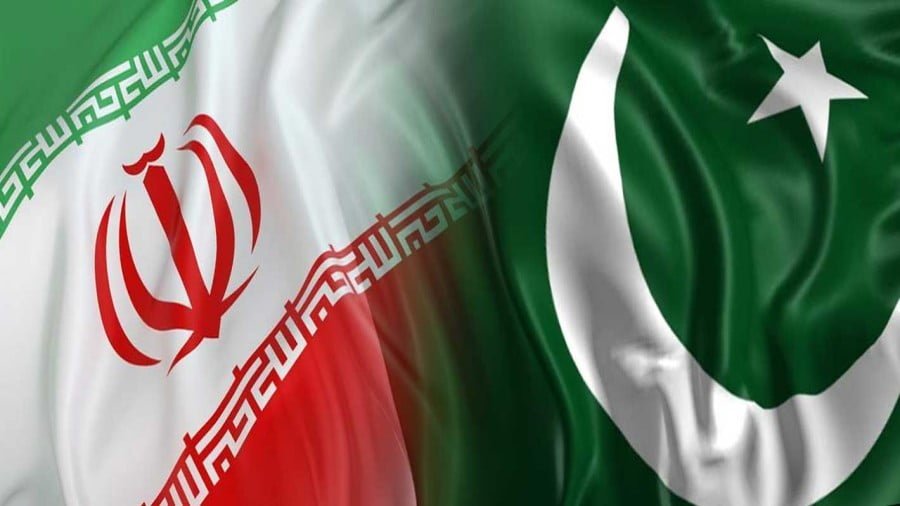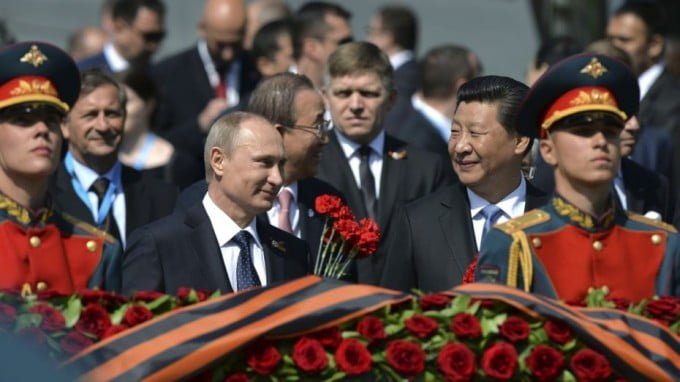Iran and Pakistan Can, Should and Must Unite
Iran and Pakistan’s 20th century relations have constituted an incredibly varied dynamic, ranging from warm relations in between the 1940s and late 1970s while relations deteriorated in the 1980s with an even more rapid degradation occurring in the 1990s.
While the 1990s saw relations between Islamabad and Tehran become deeply tense over contradictory positions in Afghanistan with Pakistan supporting the Islamic Emirate of Afghanistan while Iran supported the Northern Alliance (along with Russia and India), today’s situation in Afghanistan combined with wider long term issues of regional trade and security matters has shifted the dynamic in several crucial ways.
2017 saw important meetings between key political and military figures of both Iran and Pakistan while at year’s end, Pakistan pledged to make the border with Iran one which reflects “peace and friendship”. While there are still obstacles in the way of a full scale partnership, most of these are easily overcome so long as both sides remain committed to the spirit of trust and transparency that has generally surrounded recent bilateral discussions.
Pacific to Persian Gulf Belts and Roads
If Iran and Pakistan were to become fully fledged partners with one another and in turn use such a partnership to enhance each respective country’s existing participation in China’s One Belt—One Road, it would be possible to create a series of interlocking transport corridors stretching from China into the Persian Gulf and beyond.
This could be accomplished in one of two ways.
A Gwadar to Chabahar Maritime Belt
At present the Indian government is attempting to promote Iran’s Chabahar Port in the Gulf of Oman as a regional rival to Pakistan’s Gwadar Port. Adding to this largely imagined reality is the fact that while Gwadar was built by China, Chabahar is a product of Indian investment. Making matters more needlessly complicated, many Pakistani political commentators have taken the Indian propaganda on board that Chabahar is somehow an implicit “Gwadar killer”. What is ignored in all of these arguments is that Iran has never presented Chabahar as a rival to any project in Pakistan and what’s more, Iranian officials have often gone out of their way both in public and in semi-closed circles to explain that Tehran does not share India’s zero-sum summation of Chabahar’s purpose.
While a land route between China and Iran is possible, due to issues of often unsatisfactory road conditions, it is far more feasible at this stage to utilise the geographical proximity of Gwadar and Chabahar in order to bypass both the land routes between Pakistan and Iran as well as Afghanistan where the situation remains far from stable. In this sense, goods flowing from China to Pakistan via the China-Pakistan Economic Corridor (CPEC) would then be loaded onto ships at Gwadar before sailing west to Chabahar. This is a practical way of linking CPEC to the trade routes flowing in and out of Iran, including those going south from the Persian Gulf as well as those going north into the Caucuses.
This demonstrates a win-win model for not only coexistence but integration between Chabahar and Gwadar and in the longer term, it demonstrates how CPEC can work in tandem with India’s pet-project, the North-South Transport corridor which relies heavily on Iranian routes north into the Caucuses and Russia.
However much India might try and resist, the North South Transport Corridor is only as good as what it is linked to. Without linking up with China via CPEC, its scope is implicitly limited and Iran, a country which does not share India’s zero-sum mentality will be all too aware of this.
So long as Pakistan and Iran can agree on using existing physical assets in order to build a wider complementary trading network, Islamabad and Tehran’s trading interests will become interlinked in a true win-win situation that could eventually even be embraced by India, assuming a radical (and much needed) attitude shift from New Delhi.
Afghanistan and China
Without the fanfare associated with Washington based initiatives, China has been diligently working towards fomenting a meaningful understanding between Kabul and Islamabad. China, like Russia has acknowledged that in order to bring peace to Afghanistan, the government in Kabul must be on good terms with its eastern neighbour and likewise, that it is time for the international community to accept the inevitable which has long been acknowledged in Pakistan that in order for a meaningful peace process to be instigated, moderate elements of the Taliban must be brought to the table alongside existing non-Pashtun factions in Kabul. This would not only help to create greater political and ethnic cohesion in Afghanistan but it could help in forming an unambiguous front against Daesh terrorists who are pouring into Afghanistan, allegedly with the aid of the United States.
Ultimately, the Taliban will not engage in a ceasefire until the US withdraws from Afghanistan which is why it is important for China, Pakistan, Russia and indeed Iran to form a united front on this matter. In spite of historic animosity between the Taliban and Iran, Tehran is embracing a policy towards Afghanistan that is shaped by realism, an opposition to the US and its de-facto Daesh proxies, as well as increased good will towards Pakistan and her partners.
Balochistan
Baloch terrorism is a common threat faced by Iran and Pakistan. While India seeks to protect its assets in Chabahar, actors within the Indian deep state remain keen on fostering discontent on the Pakistani side of the border, including in and around Gwadar.
This dangerous game of chicken that India is clearly engaged in can only be stopped if Iran and Pakistan join together in order to say ‘enough is enough’.
India does not want to jeopardise its relations with Iran, especially regarding Chabahar and due to this, Pakistan and Iran are in a unique position to force India down from its zero-sum game of chicken in Balochistan and force a trans-regional commitment to de-escalation.
India cannot afford to prioritise its meddling in Balochistan over maintaining a good status quo with Iran in respect of Chabahar. If confronted with a united front over the matter, New Delhi would have to submit to realism in this area.
Islamic Unity Versus Sectarian Suspicion
Iran’s bourgeoning relations with Turkey have proved in more ways than one, that far from seeing one another as rivals among the non-Arab powers of the Middle East, Iran has been supportive of Sunni majority Turkey’s initiatives over Palestine.
A similar pan-Islamic unity between Iran and Pakistan could be formed, not only over matters like Palestine, but also in respect of Jammu and Kashmir. As India forgoes its traditional Palestine policy and continues to ingratiate itself to “Israel”, Iran will clearly need a means of leverage against New Delhi’s increasingly pro-western policies.
India’s new found partnership with the US has occurred simultaneous to Pakistan distancing itself from Washington and embracing the wider eastern partnership with China and Russia. If Iran is included into this mix, it would isolate India as a lone regional ally of the US (as Afghanistan’s situation is far from voluntary in respect of the US).
When it comes to India’s anti-Islamic policies in Kashmir and bond, its newfound love of “Israel”, its zero-sum mentality in opposition to One Belt—One Road and its growing relations with the US, Pakistan and Iran now share far more geopolitical goals as eastward looking Islamic powers, than they have differences due to the tragically overhyped “Shia—Sunni divide”.
It behoves both sides to examine these new realities and embrace grounds of commonality while ignoring any potential sectarian rifts based on an outmoded way of thinking.
Conclusion
Pakistan and Iran have a great deal to offer each other in terms of linking Gwadar to Chabahar as part of both state’s cooperation with China, increased security cooperation against common threats, the assurance of having many new and old mutual allies and a position of mutual realism over Afghanistan and wider pan-Islamic issues. If Iran and Pakistan can form a meaningful partnership, it will help two great powers of the region to mutually enrich themselves, increase their geo-political influence and secure a safer and more prosperous future for their citizens.
In light of Donald Trump attacking Pakistan on Twitter while attacking Iran just moments later, there is every reason for two large neighbours to band together against a common enemy which now includes the United States. While the US cancels funds to Pakistan and continues to sanction Iran, the aggregate effect is one of aggression and hostility toward both countries.
Even without the US hostility, Pakistan and Iran have common interests which have been obscured due to the geo-political and ideological conflicts of the last 25 years. However, presently in addition to common interests, there are also multiple common threats.
By Adam Garrie
Source: Eurasia Future







